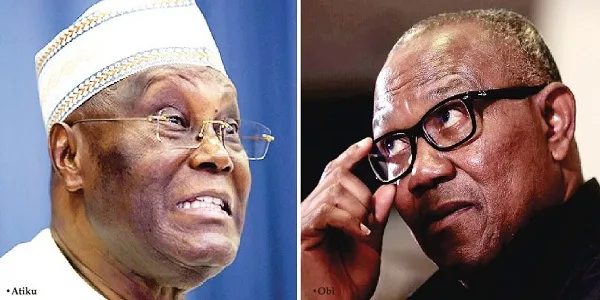The Tinubu-led government should be committed to international development efforts while advocating for equitable partnerships that align with the African Union (AU) Agenda 2063 and Nigeria’s development objectives.
PREMIUM TIMES
As a president emerged from an election that chloroformed the imagination of citizens from substantive issues during the campaign season, it is understandable, even if regrettable, that foreign policy issues never got to the top line of scrutiny and debates. It didn’t take time for such an important omission to assert itself.
In June, President Bola Tinubu visited France and pledged a foreign policy shift aimed at reinstating Nigeria’s Afro-centric approach, emphasising support for African stability and development. As the ECOWAS chairperson, he demonstrated this commitment by threatening to lead an intervention force to Niger to replace the incursionary military regime with the ousted but legitimate civilian leadership under President Bazoum, which sparked debate among prominent Nigerians.
Conventional literature and public discourse stress the alignment of a country’s foreign policy with its domestic circumstances, but Nigeria’s security challenges and economic decline have led to a redirection from an Afrocentric foreign policy to a more people-centred approach, while some critics have argued that Nigeria’s resources should be utilised for curbing insecurity and alleviating the poverty affecting citizens, rather than intervening in neighbouring countries.
To be sure, apartheid in South Africa has ended; the siege of Mozambique and Angola has been lifted; and most African states, with the lone exception of Western Sahara under Moroccan internal colonialism, are now independent, negating a compelling reason to retain Afrocentrism in its foreign policy.
Whilst there are still more battles for the genuine decolonisation of Africa, a prudent Nigeria, it stands to reason, would continue to navigate these complexities, balancing citizen’s interests amidst positive African and global priorities. It is pertinent to recognise that active international engagement does not mean neglecting domestic responsibilities. Conversely, solely focusing on international matters does not guarantee effective domestic performance.
In the absence of a clear presidential vision on foreign policy, the new Foreign Affairs Minister, Yusuf Tuggar, sought to bridge the gap, making the point as he assumed office in August that the ‘Four Ds’ guiding his Foreign Policy for Nigeria would be ‘Development, Democracy, Demography, and Diaspora engagement.’ This makes sense given that the imperative of history and the Tuggar Principle, for want of a name for it, sits well against previous perspectives on how to approach our foreign policy. Thus, Professor Bola Akinterinwa maintains that President Tinubu’s foreign policy should draw from the three main tenets of the ‘Consultation Doctrine,’ as promoted by Professor Bolaji Akinyemi, ‘Foreign Policy Concentricism,’ as adopted by Professor Ibrahim Gambari, and ‘Beneficial and Constructive Concentricism,’ as espoused by Ambassador Oluyemi Adeniji.
Looking ahead, thoughts on a redoubtable Tinubu foreign policy should be guided by the imperatives of economic development, security, sovereignty, regional stability, and international cooperation. Specifically, the following key principles and potential focus areas could guide the new administration in shaping its foreign policy:
Strengthening the Ministry of Foreign Affairs and other agencies, such as the Nigeria Institute for International Affairs (NIIA): In the 1970s and through to the 1980s, the NIIA was a major instrument for the formulation of Nigeria’s foreign policy and it provided guidance on the path that Nigeria should take on international affairs. While the Institute has been affected by weak political leadership over a couple of decades, the current leadership of the NIIA seems to have rediscovered its purpose. In July, the Institute facilitated a robust discussion on reinvigorating Nigeria’s foreign policy. The Director-General of NIIA, Professor Eghosa Osaghae, identified regional and multilateral partnerships, and citizen and economic diplomacy, as the cornerstone upon which Nigeria’s foreign policy should be constructed.
Reform of global institutions of governance like the Bretton Woods institutions (IMF and World Bank) and the United Nations (UN): The Russia-Ukraine war has exposed the global fragility and weakness of the increasingly obsolete UN in maintaining global peace. Nigeria should propel Africa to seize this moment to push for the reform, if not the transformation, of these institutions to accommodate the voices of the global South. While credit must be given to African leaders, such as the South African President Cyril Ramaphosa and Kenya’s President William Ruto, for exposing the asymmetry of relations and the urgent need for reform, the conspicuous absence of Nigeria, as one of the continent’s superpowers, is a diplomatic abnormality. The sleeping or crippled giant must be awakened to its responsibility as a potent voice of the black race.



